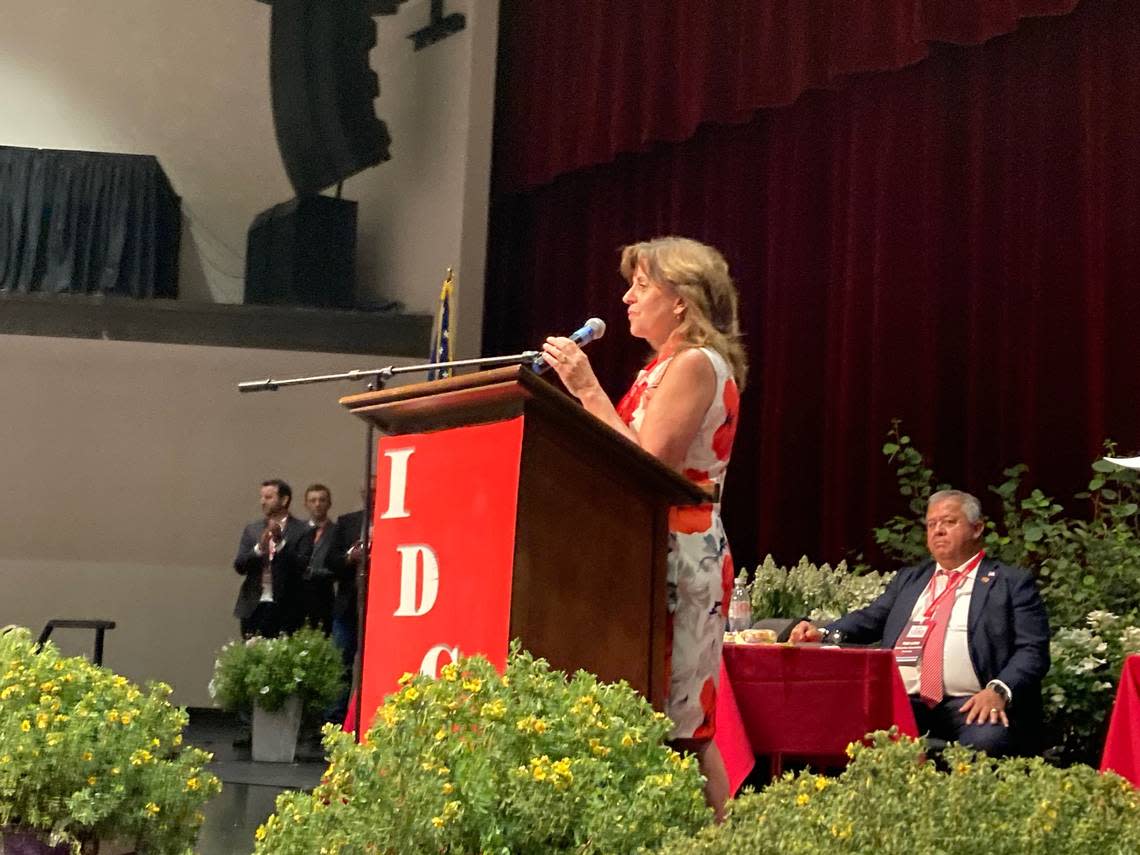Wave of GOP censures has lesson: Idaho should control the primary, not a private club | Opinion

As James Dawson of Boise State Public Radio reported Tuesday, GOP county central committees have issued a wave of censures of Republican lawmakers in the last few weeks.
It should give mainstream conservatives reason to wonder if the party should exercise the level of control it currently does over who holds power in the Gem State — and reason to consider backing the proposed initiative to reform Idaho’s primary election system.
Dawson highlighted the censure of Rep. Julie Yamamoto, who originally ran as a primary challenger on former Republican Rep. Jarom Wagoner’s right. She was censured by the Canyon County GOP toward the end of the last legislative session for voting against the bill that would allow bounty hunter lawsuits targeting public libraries, among other things.
This wave of censures is part of the acceleration of a trend stretching back at least a decade. The Idaho Republican Party used to see itself as an organization for helping candidates. Increasingly, it sees itself as a mechanism for disciplining them.
“For those who don’t, well hell hath no fury like the chairwoman scorned,” GOP Chair Dorothy Moon said at a news conference at the Capitol, as Dawson reported.
At party conventions, there have long been efforts to impose purity tests, and to find ways of disciplining Republican officials with the capacity to think for themselves. These have reached a fever pitch since the party’s convention last year in Twin Falls, where Moon was tapped to lead the party.
Moon is the type of character who would have been laughed out of the GOP a decade ago, not the kind who would be leading it. She has deep connections to the fringe John Birch Society, which famously claimed that President Dwight Eisenhower was a Soviet agent. Her husband, Darr Moon, is listed as a member of the group’s national council.
Elected Republicans were not so long ago embarrassed to be in any way associated with the Birchers.
In 2017, former Rep. Ron Nate, now with the Idaho Freedom Foundation, and his wife, Maria Nate, now the director of the Idaho Freedom Caucus, organized a series of meetings that included John Birch Society coordinator Tom Munds and conspiracy theorist Tom DeWeese. One was a sparsely attended event for the public in Rexburg. The other was a closed-door, widely attended meeting for eastern Idaho lawmakers held in Idaho Falls.
But when the Idaho Falls Post Register reported the existence of this meeting, the Republican lawmakers in attendance — many at the right end of the spectrum in the Idaho Legislature — rushed to issue statements to the effect that they had no idea what the meeting was going to be about, and that they found DeWeese’s claim that there was a plot to bring the U.S. under United Nations control using building codes and transportation planning ... rather implausible.
Today, the GOP is led by a Bircher, who openly says she plans to crack the whip on anyone who steps out of line.
Moon ascended to that position without the support of even one Republican voter — most of whom are conservative, but whose ideology shares little with the wild imaginings of the Birchers.
The GOP is a private club, not unlike a country club. It gets to set its own rules. It gets to say what it wants. There is no reason a private club should have a preeminent role in defining the choices that the voting public has in the general election.
That’s a compelling reason for the public as a whole to take that power back.
Bryan Clark is an opinion writer for the Idaho Statesman based in eastern Idaho.
